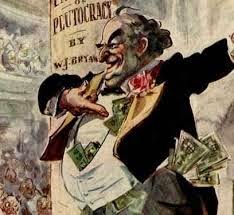How bad is it going to have to get before this dynamic changes? Without the looming specter of Communism hanging over the heads of the ultra-rich in the 1930s, the New Deal would never have come into being. What on earth is there today to force the .1% in this country to more evenly distribute the wealth created by all of us?Looking at 1,779 national policy outcomes in the United States over a period of over twenty years, Gilens and Page found that:economic elites and organized groups representing business interests have substantial independent impacts on U.S. government policy, while mass-based interest groups and average citizens have little or no independent influence.The differences between the influence of average people and moneyed elites on the policy-making process were not small, either. Bartels says that the preferences of economic elites (defined here as citizens at the 90th percentile or above of the income distribution) were fifteen times as important in affecting the government policies that were enacted on the national level.The same pattern held for interest groups. “Mass-based interest groups,” says Bartels, mattered “only about half as much as business interest groups.” As the authors note, their findings reflect not only “the ability of actors to shape policy outcomes on contested issues” but also “their ability to shape the agenda that policy makers consider.” In other words, the wealthy have massive influence on which issues policymakers will even take into consideration in the first place. The power to rule an issue off the nation’s political agenda altogether may be the greatest political power of all.
Friday, April 18, 2014
Eat the Rich
We are well and truly rogered:
Subscribe to:
Post Comments (Atom)

No comments:
Post a Comment